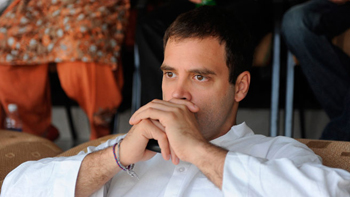
Ballia, Jan 11: The family of the 23-year-old Delhi gang-rape victim today rued that Congress General Secretary Rahul Gandhi did not come to meet them or even call them up.
"We are sad that Rahul, who is known for visiting people in distress, did not come to meet us. He even did not make a call," the brother of the girl said here.
He said that when the body of her sister was brought from Singapore, Prime Minister Manmohan Singh and Congress President Sonia Gandhi had met them but they have not heard anything from Rahul yet.
"The outrage expressed by people of the country over what happened with my sister has proved to be a catalyst for change. We are hopeful that such unfortunate incidents would not recur in the future," he said.
About the allegation made by the lawyer of the accused that they had been tortured by the police, he said whatever they say or do would not help them as there was enough proof regarding the brutal incident.





Comments
Add new comment